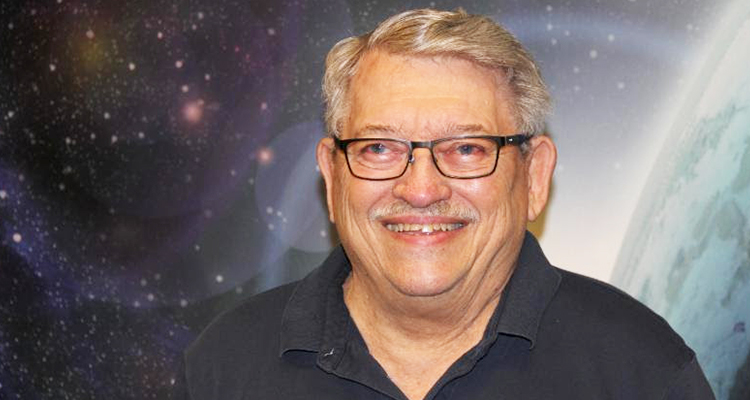Floods, droughts, blizzards, heat waves, tornados, hurricanes, eruptions and earthquakes. Many people in the Wheeling area and across the nation have personally experienced such natural disasters in recent months and years. Now an educational group at Wheeling University will use the drama of these climate and geologic extremes to inspire and inform middle school students about the life-threatening health effects of natural disasters as a way to stimulate student interest in science.
The Center for Educational Technology and the Challenger Learning Center at Wheeling University have been awarded a five-year $1.3 million Science Education Partnership Award grant from the National Institute of General Medical Sciences at the National Institutes of Health to create Natural Disasters & Health, a simulation of disaster emergencies where students learn by taking on the roles of emergency responders, doctors and scientists.
THE PROJECT
Dr. Charles Wood, the leader of the project, says Natural Disasters & Health will provide disaster health education as live, 90-minute video-conferenced simulations incorporating gamification elements. Students will employ knowledge of how the human body works to make critical decisions about emergency treatment. They triage survivors, diagnose injuries and determine treatment options. Following the simulation, a teacher is encouraged to invite local public health or emergency management officials to talk to their classes about historic and likely future natural disasters in their community. Students literally will bring home their learning by developing a family disaster response plan.
All project activities will be supported by professional development for teachers, and an online Disasters and Health Resource Center will include curricula on body systems and disasters, with career information integrated into the simulation and curricula. Challenger Learning Center Director Jackie Shia states that CET/CLC’s 26-year history has demonstrated that immersion of students in vibrant science simulations can trigger life-long interest in science, yielding future scientists, engineers and doctors, as well as a more scientifically literate public.
THE GOALS
One of the goals of this Natural Disasters & Health project is to introduce students to socio-scientific issues related to disasters. This includes consideration of controversial, socially relevant concerns as well as scientific facts. For example, global warming is predicted to increase the frequency and severity of meteorological disasters, so students will discuss if human actions cause more disasters.
The NIH’s SEPA program promotes innovative science education to help increase workforce diversity necessary to maintain American leadership in science and medicine and to develop public health literacy resources. CET/CLC activities will be solely the responsibility of the authors and do not necessarily reflect the official views of the NIH.
For further information, contact Wood at 301-538-5244 or chuckwood@wju.edu.



